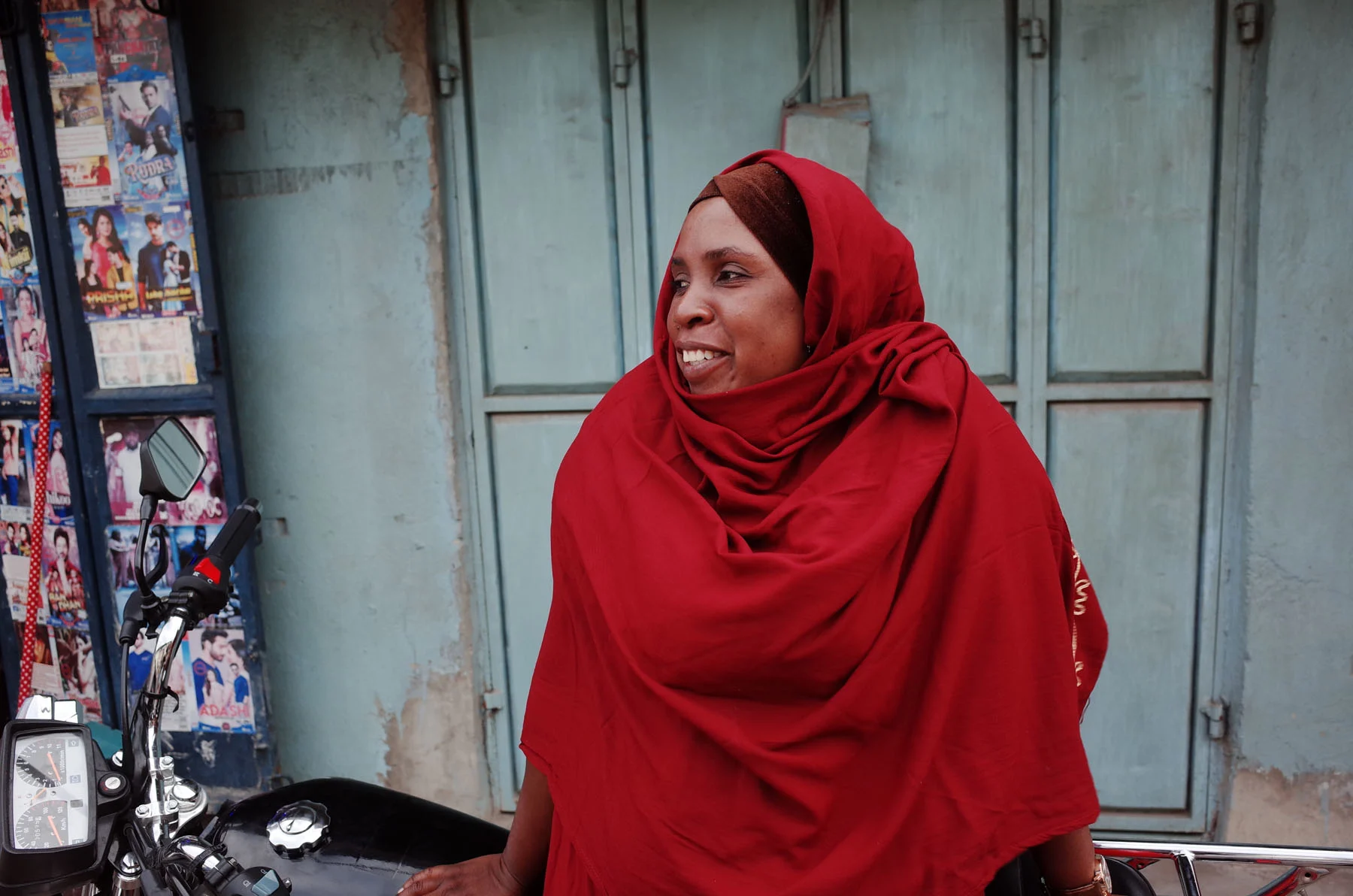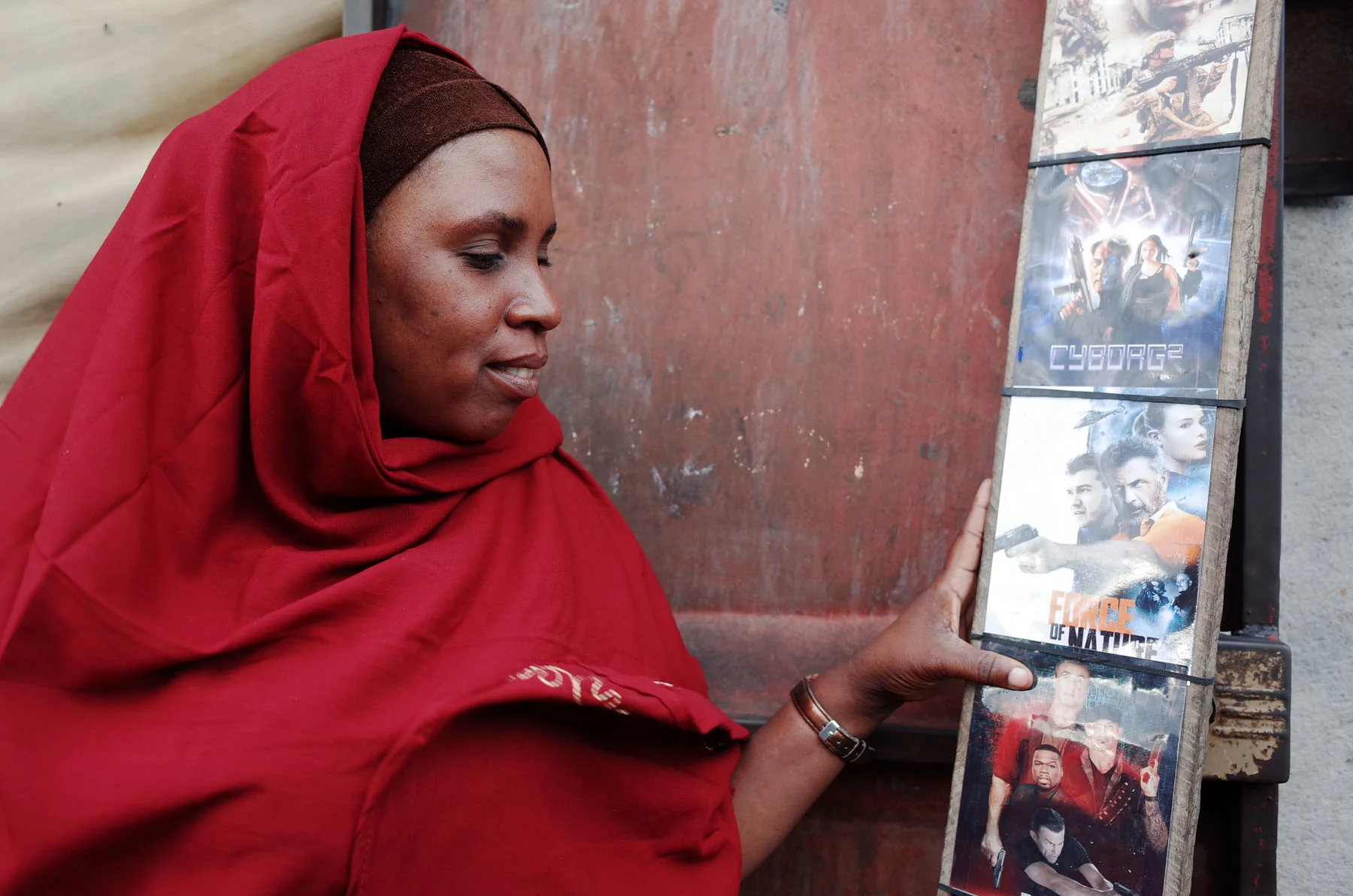


The people making films available to the masses in Tanzania
“Maangamizi: The Ancient One” is Tanzania’s most successful film globally, having been screened at festivals worldwide after its release in 2001, but most Tanzanians haven’t seen it. And it’s not only local films that the locals haven’t had access to; a history of films only being screened for or available to the middle classes in the country has seen to that. WePresent-commissioned film “Apostles of Cinema,” created by production house ajabu ajabu, introduces us to the distributors, translators and cinema-owners working to make sure movies of all kinds are available to the masses, and building a system where the beauty of cinema is provided, preserved and enjoyed by the people.

Frank’s “Movies and Series” Library is a metal cabin along a road in Msasani, the western side of a wealthy peninsula protruding from the coast of Dar es Salaam. A long road close by, Kimweri, is named after one of the last Black monarchs of the region, and monitors a divide between here and the area’s elite spaces where many of Frank’s customers find work. His community represents the majority and, in a city of over four million, spanning over 1000 square kilometers, it’s communities such as these that have contributed most to the Dar’s vivid sense of self. A great deal of the city’s creative intuition operates on the edge of access or conformity, is born, and rooted, in defiance of standards of legitimacy that favor cultural services operating from the top down rather than the ground up.

Frank's Library is part of this cycle, as is the work of all the informal workers at the heart of “Apostles of Cinema.” His shop began as a single table covered in DVDs, and it’s now grown to become one of a number of “film libraries” along the street. For a small fee, each of these libraries offers flash drives full of movies that would otherwise be too expensive to acquire. We are both from Kigoma—a city on the northwest border, and the furthest most people can imagine going while remaining in Tanzania. In his store, there is only enough room for one, so we speak through metal grates as he shares his thoughts on “Maangamizi: The Ancient One.”

The film, a 2001 Tanzanian-American co-production, has a scale, ambition, and prestige that belies its absence in the minds of many in Tanzania. Despite being screened at several international festivals and places as far and wide as Miami, Paris and Tokyo, the film’s presence in Tanzania was restricted to only a handful of screenings held in predominantly middle class spaces, and its cultural legacy is at an impasse.
“Maangamizi is now available in Kigoma,” he tells me, by way of expanding on both his work and his fondness of the film, which he too had not heard of until our flash drive reached his computer. “Now people there can see it,” he continues. “Isn’t this the purpose of a film? To reach the farthest corners? And we are the ones who can take it there.”
We, meaning they, he and other agents with stores like this all across the country. It is often easy to discern them, even in passing, by the presence of a screen or a monitor and old posters or film covers on or around the door, or on a table top. There are several on the same street, several along roads and avenues in Kigoma—and many, many more in the cities and towns in between.
It was significant that Frank’s appraisal of the film quickly moved beyond questions of quality and into ones of reach. It’s too often lost on global film distribution practices that distributors are also storytellers—that their assumptions about where a story should go and how much it is worth are manifestations of belonging.


We accompany Frank to the distribution hub in the center of the city where he and other agents manifest “belonging” for stories from all over the world. Adorning the walls, wrapped in glinting plastic and covers designed in-house, are discs holding Korean series (“I’m Sorry, I Love You”), South Indian epics (“K.G.F”), and niche sub-blockbusters (“The Getaway.”) We are told, in one of these spaces, that local films have no market. The strictures around ownership of local material are too onerous and difficult to navigate, so the work available is from elsewhere. Yet, in the atmosphere and energy of these spaces, these stories don’t necessarily feel like they're from elsewhere. Visible on the screen and competing on loudspeakers in every booth, the films are shown dubbed over by local “DJs,” their voices and asides anchoring each story to the current context.

Among these voices—prominent, prolific, loquacious—is DJ Black, who spends his days (and nights) fixed at a desk in a studio in his front room, “translating” movies. The volume and variety of the films Black dubs over amount to a perspective on the world’s cinematic output, authored through observations, linguistic verve and social acuity—a performative reflection of the relationship between film, place and time. Black works hard to keep this relationship current and alive. The DJs come and go but their work and approach—their enduring necessity—reflects the limits of singular, authorial approaches to the experience of cinema.

Black dubs “Maangamizi”—adds additional layers of accessibility, elements of historical background, notes on the creators, architectural and political observations, and translation, often in a single breath. We bring his “Maangamizi” to an informal cinema hall owned by his friend Rehema. The space is just one among many on intersecting streets in Buguruni. A street full of cinemas, each showing a film while telling its own story with the audience and film interdependent.
Alice Walker once wrote, “Maangamizi - The Ancient One” is more than a movie…we are mesmerized to see on the screen something that we normally, if we are lucky, experience only in dreams. The reconnection to The Way. The way of the ancestors. The way of relating all to all… Beginning to future. Human to earth.”


We spoke with the film’s co-directors Martin Mhando and Ron Mulvihill over the role that Dar es Salaam's local cinematic slipstream might play in addressing a lack of access to Black African visual heritage outside of privileged institutions in the West. Bringing this film into these spaces was only possible because they had managed to hold onto its rights. How far the film travels within these spaces, and what further connections might be allowed between audiences on the margins and works that are so close to their perspective, experience, and histories, is a question of time and a question of continuing access.
For us, and thankfully, for them as well, to work with Frank, Black, Rehema and others was to envision a world where cinematic heritage is preserved not by agencies, institutions, or corporations, but by people.